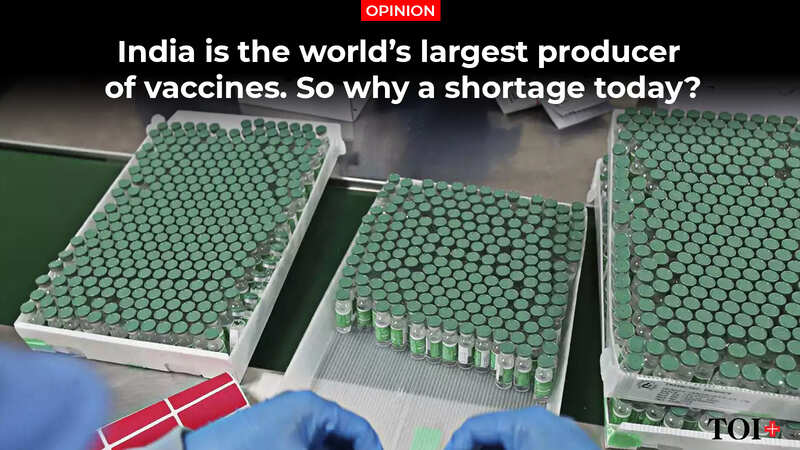
- Ajit Ranade
- Updated: Apr 3, 2022, 23:03 IST IST
Various reasons, such as the Centre not ordering vaccines on time, haggling over the price, a shortage of ingredients required in the manufacture and export restrictions from sourcing countries may have brought us to this point
India is the world’s largest producer of vaccines. This was known even before the pandemic. We produce nearly 60 per cent of the world’s vaccines. The Unicef depends heavily on vaccines produced in India for its global health programmes. The reason India emerged as the world’s biggest manufacturing hub for vaccines is not just because of the low cost of producing and of clinical trials; this low cost advantage lies with other developing countries as well. But India is able to provide them on a massive scale. The second important reason is that India has a large pool of talent available for a wide range of needs of the pharmaceutical industry. This talent did not develop overnight. It goes back to investments made more than 70 years ago. Let’s not forget that India was already producing penicillin in 1955, at Hindustan Antibiotics Limited, a public sector company. As a result of that early investment in ‘aatmanirbharta’, India became a global leader of export in bulk drugs and formulations, including vaccines.
But that status today is extremely endangered because the vital inputs needed to produce the bulk drugs, i.e. the pharmaceutical intermediates (APIs) are imported. Nearly 70 per cent of APIs are imported from China. This wasn’t so a couple of decades ago. We let our leadership in producing intermediates slip away to China, which was undercutting our costs. But the implication of this heavy import dependence is dire. Today, we cannot even produce enough life-saving drugs, like penicillin, in India for our own needs. The recently-launched Production Linked Incentive programme of the Government of India aims to correct this anomaly by paying Indian manufacturers an additional top-up profit, so that production can shift back to India. But this won’t happen overnight.
But that status today is extremely endangered because the vital inputs needed to produce the bulk drugs, i.e. the pharmaceutical intermediates (APIs) are imported. Nearly 70 per cent of APIs are imported from China. This wasn’t so a couple of decades ago. We let our leadership in producing intermediates slip away to China, which was undercutting our costs. But the implication of this heavy import dependence is dire. Today, we cannot even produce enough life-saving drugs, like penicillin, in India for our own needs. The recently-launched Production Linked Incentive programme of the Government of India aims to correct this anomaly by paying Indian manufacturers an additional top-up profit, so that production can shift back to India. But this won’t happen overnight.
